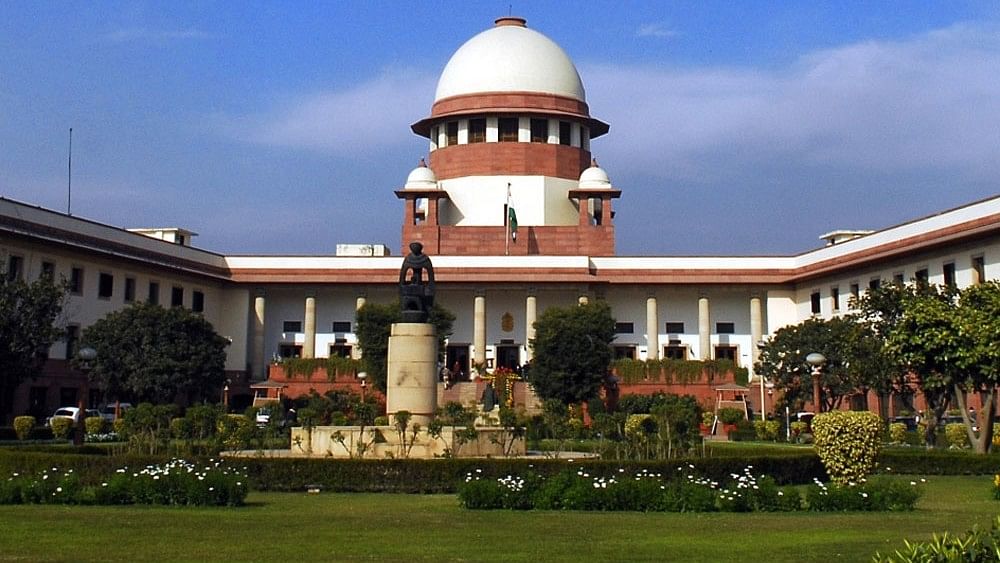
The Supreme Court
Credit: PTI Photo
New Delhi: The Supreme Court has directed the Kolkata's Special CBI court to decide within 10 days the bail application filed by TMC leader Kuntal Ghosh in a money laundering case in connection with the teachers recruitment case.
A bench of Justices Surya Kant and Ujjal Bhuyan on October 1 issued notice to the Enforcement Directorate on a writ petition by Ghosh questioning transfer of his bail mid way from a Kolkata court to the Special CBI court after it was substantially heard.
"Meanwhile, the Special CBI Court, which has been notified as a Special Court under Section 43 of the Prevention of Money Laundering Act, 2002, to take up the bail matter of the petitioner on day to day basis, and decide the same within 10 days and send a compliance report," the bench said.
The court sought a response from the ED by October 17, 2024 on his writ petition, after hearing counsel M S Khan for the petitioner.
Ghosh was arrested by the ED on January 21, 2023.
The ED alleged TMC's youth wing leader Ghosh collected Rs 20 lakh from each job seeker, and deposited more than Rs 6.5 crore in two bank accounts in his name, one at ICICI Bank and another at Indusland Bank. The amount was immediately transferred to other bank accounts for investment purposes.
The ED also claimed Ghosh forayed into the entertainment industry and formed a partnership firm to develop music videos and short films. The collected money was used to buy high-end vehicles for Tollywood stars.
In his writ petition, Ghosh, who filed the bail plea on May 3, questioned the transfer of his application on August 31 to another court or judge, after a substantial hearing has already taken place, resulting in the necessity for a de-novo hearing and fresh consideration by the new judge in a case where the trial has even not commenced.
He contended this constituted a violation of the fundamental right to a speedy trial guaranteed under Article 21 of the Constitution, especially in light of judicial precedents which establish that "bail is the rule, and jail is the exception".
